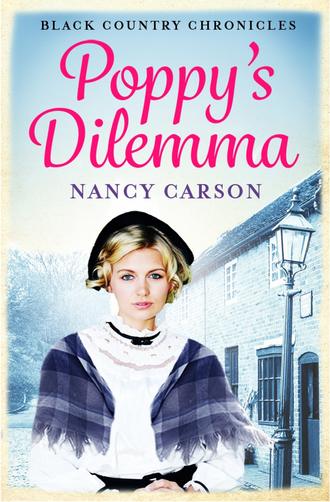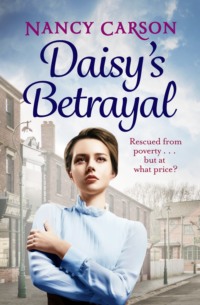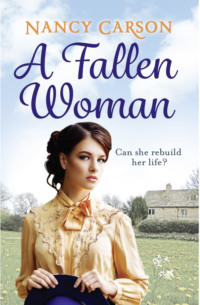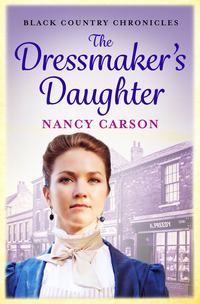
Полная версия
Poppy’s Dilemma
* * *
Lightning Jack and Bilston Buttercup had reached the sweeping curve of Chipping Campden’s High Street on the day they anticipated. They enquired as to the proximity of the railway line and the Mickleton tunnel but the locals, who seemed very respectable, did not seem kindly disposed towards them. Eventually, they were directed out of the village on a north-easterly path. They came to the railway track bed under construction and followed it until it came to a dead end. Lightning Jack speculated that the tunnel workings must be over the hill that lay before them. It was not long before they saw the mountains of spoil, the shaft with its steam engine, and a small shanty town of dilapidated huts. A navvy directed them to a ganger who set them on.
Both men had exhausted their money, mainly on beer, but they were amply fed and watered that evening by the resident navvies, with typical navvy hospitality. Their lodgings were in a hut similar to that which Lightning had left behind at the Blowers Green encampment. The same ganger who had employed them, called ‘Swillicking Mick’ because of the vast amounts of beer he was reputed to drink, operated it.
They ate that evening in the common living room of the hut with the others, enjoying cuts from a massive piece of beef and mounds of potatoes from a huge pot that hung over the fire. The only windows, each immediately either side of the solitary door, were stuck in the middle of the room’s longest wall. The kitchen was located opposite a stack of beer barrels. It was home from home.
Swillicking Mick kept them amply supplied with beer. ‘Pay me when you get paid, lads,’ he said. ‘I’ll not rob thee for it. I brew it meself so it works out cheaper than the stuff from the tommy shop.’
‘It’s decent stuff an’ all,’ Lightning commented. ‘Pour us another if it’s cheap.’
Swillicking Mick’s woman, wearing a leather belt from which hung the keys to the locked beer barrels, duly poured Lightning another and made a note of it in a little book that she withdrew from the pocket of her apron.
‘There’s no decent beer shop hereabouts, so a few on us have begun brewing our own,’ Mick informed them. ‘Course, you can always tramp into Campden. A good many do of a Saturday night. The beer houses want our trade, but the locals ain’t too fond o’ the rumpus we cause. Already they’ve put bars up at the windows o’ some o’ the properties, save ’em getting bost.’
‘The contractors don’t like you brewing your own beer, I’ll warrant,’ Buttercup ventured, nodding in the direction of the barrels. ‘’Specially if they ain’t taking a cut.’
‘Nor would the exciseman if he knew,’ Mick said with a wink. ‘The only problem is, I’m more inclined to sell me beer than work on the construction. So would all the others. It earns us a mint o’ money.’
Mick’s woman, Hannah, began clearing the things away and the men continued talking. There were nine or ten men in the room; it was getting noisier and the humour increasingly boisterous. Then there was a knock at the door; more customers for Swillicking Mick. A group of five or six ruffians entered, one of whom carried a fiddle and a bow. They bought beer, and the chap with the fiddle began playing a lively tune. Several of the men began dancing with each other, their boots hammering on the floorboards. Others were sitting on the floor playing cards, their poaching dogs alongside them, and they complained that the dancing would be understandable if there were women about. At that, the door opened again and half a dozen women and girls squeezed inside.
‘The women from the mill,’ Swillicking Mick remarked with a wink.
It was beginning to get crowded. The card-players cheered and got up from the dusty floor, to engage in a more interesting sport.
One of the women – she looked about thirty years old but was possibly younger – attached herself to Lightning.
‘I’ve not seen you before, have I, chuck?’ she said in her rural drawl.
‘Not unless you can see as far as Dudley,’ Lightning answered.
‘You do talk funny. Is that how they talk in Dudley?’
Lightning grinned inanely; the beer was having its effect. ‘They talk even funnier than me in Dudley. I come from Cheshire. But even Dudley folk don’t sound so weird as you with your quaint country twang. What’s your name, by the way?’
‘Jenny Sparrow. What’s yours?’
‘They call me Lightning Jack.’
‘Well, Jack, you look a big, strong chap to me, with your big, drooping moustaches. Spoke for, are ye?’
Lightning took a swig of beer and wiped his moustache with the back of his hand. ‘What’s it to you? Fancy your chances, do you?’
‘I’m not so ugly as to be discounted, am I, Jack?’
‘Ugly?’ he queried. ‘No, you’re a fine-looking wench, Jenny … And that’s a handsome bosom you’re flaunting.’
Jenny beamed. ‘Maybe you’d like to help yourself to a handful later?’
‘It depends what it’s gunna cost me.’
‘Oh, I don’t do it for money, Jack. I do it for love …’
Chapter 5
Waiting for Wednesday was, for Poppy, like waiting for her plum pudding at Christmas. As one o’clock approached, she tried hard to remain calm, anxious not to give her mother any hint at all that she was leaving her to do the cooking and the feeding of lodgers, just to meet a young man – and one above her station at that. Sheba would get to hear of it, no doubt. Somebody was bound to see them and report back. Nor would Sheba be pleased. But Poppy would handle that crisis when it arose …
She had taken the trouble to wash her hair the night before. She had cleaned her clogs and her fingernails. In the family’s overcrowded bedroom she’d stood at the washstand and enjoyed a thorough wash down, feeling fresh and confident after it. She had laundered her stockings, and inspected the clothes she intended wearing, which, to allay any suspicion, would have to be a working frock.
So, at five minutes to one, she took off her pinafore, tidied her hair and looked at herself briefly in the ancient, mildewed mirror that hung by a piece of string from a nail near the door. If only she had a more alluring frock to wear, but to change it and put on her best red one would have been to broadcast her intentions. So she resigned herself to the fact that she must make do. At least the frock she was wearing was clean. Poppy failed to realise that she looked good in whatever she wore. She was blessed with a beautiful face and a complexion as fair as her flaxen hair. She possessed a natural daintiness and elegance of movement which, had she been dressed in silks or velvets, would have been perceived as grace.
She put on her bonnet and slipped out without a word to her mother. The rain of Monday had ceased and the weather had changed for the better again, with sunshine and a gentle breeze. Thankfully, the mud of the encampment was drying out. Poppy walked towards Shaw Road at the intersection with the footpath where she was supposed to meet Robert, her heart thumping in anticipation. While she waited, first looking up Shaw Road for sight of him, then self-consciously at her clogs, she felt conspicuous, certain that the wary eyes of the encampment were on her and suspicious of what she was up to.
Before too long she heard the familiar clack-clack of the iron-rimmed wheels traversing the craggy surface of the road. She turned to see Robert hurtling towards her, a grin on his handsome face, and her heart lurched.
He’d remembered.
‘Have you been waiting long?’ he asked, when he came to a stop beside her. ‘Sorry if I kept you waiting. I was held up by Mr Shafto – you know, the sub-assistant – wanting some information about some measurements I’d taken.’
Poppy smiled at him brightly. ‘It don’t matter, Robert. I was a bit early … but I had to get out when the chance came.’
‘I presume, then, that you haven’t changed your mind about riding with me?’
She shook her head. ‘No, I ain’t changed me mind, but I was thinking about what might happen if we fell off,’ she said, vividly recalling her dream.
He shrugged. ‘We could, of course. It’s entirely possible. But if the fear of it puts you off, I’ll be extra careful that we don’t. It’s not as if you’re going to be an enormous weight to carry. You’re quite small really. Why don’t you get on?’
She stood close to him and turned around so that she could sit on the crossbar of his machine. It felt hard against her rump, like the bar of a gate.
‘You need to sit back a little bit further,’ Robert said, ‘so that the machine balances. And so that I can get my feet on the treadles.’
She pushed herself further on and felt the crossbar under her backside. Robert was steadying the handlebar and his right arm formed a barrier that she could lean against to prevent her toppling over backwards.
‘Are you ready? Lift your feet higher … no, higher … I have to reach the treadles. Don’t worry, I’ll hold you.’
He scooted off and, after a couple of initial wobbles, they began travelling in a commendably straight trajectory. The road was pitted and bumpy and the frame of the machine transmitted all those bumps to Poppy. Her very bones juddered, but it was exhilarating. The wind was in her hair and against her face as they gathered speed, and she heard herself shrieking with excitement. They hurtled underneath the new railway bridge and approached a grassy mound that vaguely marked the end of Shaw Road and the start of the undulating footpath to Netherton. As they rode over it, Poppy’s innards rolled over and seemed to reach her throat in an unbelievable sensation, making her whoop with delight. She was between Robert’s arms, holding on to him tightly while he steered the machine, conscious of his left leg rising and falling under her skirt as he controlled their speed with the treadles. The ground over the footpath seemed softer, with no hard bumps to bruise her bottom and the backs of her thighs more. She would not mind falling off now and rolling into the long grass at the side of the footpath with Robert …
But they did not fall off. They bowled past tiny cottages in desperate need of repair, past the Old Buffery Iron Works that glowed red at night-time, flaring the dark sky with an eerie crimson glow. They skimmed past the Iron Stone pit with its huffing, clanking steam engine. Robert slowed down the machine as they reached the turnpike road from Netherton to Dudley at Cinder Bank, and carried on over fields. Just before they reached a fishpond, they stopped.
‘Well?’ Robert said. ‘Did you enjoy that?’
Poppy was breathless after the ride. ‘Oh, I loved it, Robert.’ She hooted with laughter, and with the back of her hand wiped away wind-induced tears that had traced a watery line across her flushed cheeks.
She sat on the crossbar pressed against him, still trapped between his arms, radiant with excitement. Robert looked at the delightful profile of her face. She was close enough for him to steal a kiss if he wanted, although he did not take advantage. Instead, he smiled with satisfaction at the few moments of joy he’d brought to this enigmatic girl, by giving her something as simple as a ride on his rudimentary two-wheeled machine.
Feeling Robert’s strong right arm protectively at her back, Poppy was loath to dismount, but she let her feet fall to the ground and eased herself forward. As she stood, her skirt brushing the side of the machine, she hoped Robert would invite her for another ride at some time.
‘Well, we have a long walk back,’ he commented, himself dismounting. He turned the two-wheeled contraption round and began pushing it in the opposite direction. ‘I’ve been working on a design for another machine,’ he said to Poppy as she ambled beside him. ‘Similar to this one but with a better means of propelling it forward. I’m convinced that something like it has immense commercial potential.’
She turned to him and smiled with admiration, uncertain of the meaning of the words ‘commercial’ and ‘potential’. If only she was educated. If only she had been given some schooling, she would be more able to talk with him on his level.
‘What time do you have to be back at work?’ she asked, mundanely.
‘Half past one. Mr Lister, the resident engineer, gets rather rattled if I’m late.’
‘So what time is it now?’
He took his watch from his fob and checked it. ‘Quarter past. We’re easy on.’
‘Good. I wouldn’t want you to get into trouble on my account.’
For the first few yards of their walk back, there was a pause in their conversation. Poppy noticed the wild flowers growing at the edges of the black earth footpath – buttercups, daisies, ragwort, dandelions. Thistles were thriving too, growing tall in the warmth of the May sun and the recent rain, and it struck her how beautiful they were to look at, if not to touch.
‘Thank goodness we didn’t fall off into those thistles,’ she remarked. ‘We’d have been scratched to death.’
‘Or into nettles,’ Robert replied easily.
She nodded. ‘Oh, yes, I hate nettles.’
‘So do I.’
‘Do you like being an engineer, Robert?’
‘Actually, yes, I do.’ He turned to look at her face, always an entertaining mix of earnestness and gaiety. He was fascinated as well at how easily she could turn from one subject to another. ‘It’s interesting being an engineer. There’s something different to deal with all the time.’
‘What sort of things do you have to do?’
‘Oh, measuring and marking out, tracing plans, trying to calculate whether the spoil we take from a cutting will be sufficient to build an embankment. I’m handy with a pair of brass dividers, a blacklead and a straight-edge.’
‘I’ve often wondered,’ Poppy said, her face suddenly an icon of puzzlement, ‘if they start driving a tunnel from more than one place, how they manage to meet exactly in the middle.’
Robert laughed, fired with admiration for her curiosity. ‘By candles, usually,’ he replied.
‘Candles? How do you mean?’
‘Well, it’s dark inside a tunnel, Poppy. So what you do is to line up the centre line of the tunnel by exactly placing lighted candles at predetermined intervals. When you have three candles exactly in line as you match them up against the cross hairs on your theodolite, then you know your tunnel is straight – or level, if you’re taking levels.’
‘What about if there’s a bend in the tunnel?’
He laughed again, astonished at her grasp of engineering problems. ‘Before you start excavating a tunnel, you sink narrow shafts along the way,’ he explained. ‘These shafts would already have been pinpointed during a survey. The centres of those shafts meet the centre line of the tunnel perpendicularly and, if they’re not in direct line – in other words, if they form a bend – you follow the line they form. Do you understand?’
Poppy nodded and emitted a deep sigh. When Robert looked at her again, her expression was serious, almost grave.
‘What’s wrong?’ he asked, concerned. ‘Are you worrying about your father?’
‘Oh, no, I was just thinking how lovely it must be to be educated. To be clever enough to do all the things you do.’
‘Oh, I’m not particularly clever,’ he said modestly. ‘But having had a decent education enables me to earn a good living, I admit.’
‘I wish I was educated. It’d help me get away from the navvy life. If only I could read and write …’
‘Don’t you like the navvy life?’
‘Would you like it?’
‘Probably not,’ he admitted. ‘But I work with the navvies, such as your father. I find them agreeable enough, by and large – when they’re sober, anyway. Ask them to do a job, explain what you want, and they do it. They work like the devil, shifting hundreds, even thousands of tons of earth in no time. You must have watched an excavation and seen how, in only a few days, they can transform a landscape. They don’t mince their words either. If they have something to say, they say it. But living with them?… I imagine some of them are inclined to be uncouth.’
‘I don’t know what that word means, Robert – uncouth. I hope you’ll excuse my not having been educated.’
‘Uncouth?’ He smiled kindly. ‘It means rough, rude, barbarian.’
Poppy laughed. ‘Oh, yes. Most of them are uncouth … barbarian … See? I’ve learnt two new words a’ready. I do wish you could teach me more …’
‘I’m afraid that what I know is limited to engineering and surveying, and not much use to a young woman,’ he said realistically.
He turned to look at her, sympathy manifest in his eyes. This girl was not like the navvies to whom she belonged. She was apart from them, a cut above, bright – extremely bright – thirsting for an education which had eluded her, and thence for knowledge to lift her out of her humdrum existence. It was a worthy aspiration, too. If her life took the normal course one would anticipate of a navvy-born girl, she would be expected at her age, or even younger, to be the compliant bed partner of whichever buck navvy was first to claim her, if not of her own volition then either by buying her, or by fighting somebody else for her. It would be a sin if she were so treated and thus doomed for lack of education. She was worthy of so much better. Her self-respect raised her above the meagre expectations of navvy women. It was truly a wonder she had not already been claimed …
‘Where the hell d’you think you’ve been?’ Sheba angrily asked Poppy when she re-entered Rose Cottage. ‘Fancy sloping off when we was finishing off the dinners. Where’ve you been? You’ve been gone nearly an hour.’
Some of the navvies were still in the room, sitting at the round table, their legs sprawling, big boots seeming to take up most of the floor space. The place reeked with an unsavoury mixture of pipe tobacco smoke, beer, sweat, cooking and rotting vegetables.
‘I had to go out, Mom,’ Poppy replied quietly with a guilty look, turning away from the navvies so that they shouldn’t hear.
‘Had to?’
‘I promised to meet somebody. I couldn’t let them down.’
‘Bin a-courtin’, my wench?’ one of the men, called Waxy Boyle, asked through a mouthful of dumpling.
‘It’ll pay her not to have bin a-courtin’,’ Sheba railed. ‘Not when there’s work to be done. Who did you go and meet?’
Poppy blushed. Blushing was becoming a habit which she did not enjoy. ‘I’ll tell you after, not that it’s any of your business.’
‘I’ll give you none of my business, you cheeky faggot. Get your apron on and do some work, you bone-idle little harridan. Any road, I’ll get to know soon enough, whether or no it’s any of my business.’
‘I ain’t been courting, Mom,’ Poppy added defensively. She removed her bonnet and hung it up on the back of the door. ‘I ain’t courting nobody. I just went to meet somebody.’
‘A chap or a wench?’
‘I’m not saying.’
The assembled navvies laughed raucously. One of them said that it must be a chap, because she’d admit it if she’d only met a wench.
‘It’s time her had a chap,’ Tweedle Beak said to Sheba as he cut a slice of tobacco with his pocketknife from a stick of twist. ‘A fine-lookin’ wench like young Poppy. By the living jingo, I wish I was ten or fifteen years younger.’
‘She can have a chap – I couldn’t give tuppence who he was – and he’d be welcome to her,’ Sheba replied. ‘But when she’s supposed to be helping me she’ll stay here and work.’ She turned to Poppy. ‘So get cracking, and knuckle down to it.’
Two more weeks passed and Lightning Jack had not returned. In that time, Chimdey Charlie, whom Jericho had fought and beaten over a pillow that wet and muddy night, had sloped off, owing money to Ma Catchpole for his lodgings. Many speculated that he must have left feeling ashamed at being belittled by Jericho in front of his mates. Ashamed or not, he obviously felt vengeful, because he took with him the pillow he had lost to Jericho. Jericho, however, had gained much respect from winning that fight. Few men were prepared to challenge him, having seen the ruthless efficiency and strength with which he had quickly overcome and downed Chimdey Charlie.
Jericho had not bothered Poppy since, either. She noticed his ignoring her, but she was steeped in thoughts of Robert Crawford. It did seem odd, though, that Jericho should suddenly fail to pay her any attention at all after the fuss he made over her at first. Evidently he was just another of the faithless type she’d heard about, the type that blows hot and cold, fickle, unpredictable. For all that, she was a little intrigued. How could somebody show such an obvious interest one day, then turn away from her the next? Maybe she had expressed a little too strongly that she was not like the other girls he’d met, that she was not easy meat. Yet he’d said he rose to such a challenge. Well, he hadn’t risen to this one – and thank goodness.
Another person who had not been near Poppy, although he had not been entirely avoiding her, was Robert Crawford. Actually, he found her totally disarming, which began to worry him seriously. He was torn between leaving her be, because of her lowly upbringing and complete lack of any station in life, and the desire to gaze upon her striking countenance once more. If he could find a plausible excuse to see her again he would. He had considered offering her some help in overcoming the same lowliness that was manifestly dividing them. But how could he help? It would hardly be seemly to give her money, even if he could afford it. He could hardly whisk her away from the encampment and set her up in a lodging house without the world accusing him of keeping a very young mistress, when that was not his intention. Such an accusation would not do his situation any good at all, with all the responsibilities it entailed.
So he didn’t go out of his way to see Poppy. He lacked the excuse. In any case, he didn’t want her to get the wrong idea and think he harboured a romantic interest. How could he possibly be interested in the illegitimate daughter of some navvy who’d had to flee the site to avoid prosecution and likely transportation? Just because her face was angelically beautiful and he couldn’t keep his eyes off her … Just because there was this undeniable grace and elegance behind the rags and tatters and hideous clogs that she wore … He would be a laughing stock. All the same, it was a great sin that that same undeniable grace and elegance would never have the chance to surface and decorate the world. It was a greater sin that her natural intelligence would never have the opportunity to shine through. Could it not be nurtured somehow and put to good use, at least for the benefit of the navvy community, if not for society in general?
If only he could devise some way of helping her without compromising either of them. She was worthy of help, that Poppy Silk. She deserved better than the unremitting mediocrity of the life she led. She warranted something more uplifting than constant exposure to the crushing, unrestrainable coarseness and brutality of the navvies’ encampment to which she was shackled. But what? How could he, a mere engineer, possibly help her?
And then he had an idea.
On the first Saturday of June, as it was approaching yo-ho – the time when navvies finished their work – Sheba and Poppy were sweating over the copper. Lottie and Rose, Sheba’s younger daughters, were outside in the sunshine. Her son, Little Lightning, was still at work. Each man’s dinner was wrapped in a linen cloth and boiled in the copper, tied to a stick from which it hung. Because the women could not read, each stick bore identifying notches. If a stick had five notches cut into it, it belonged to Tweedle Beak. If it had three notches it was Waxy Boyle’s, and so on.
They chatted as they worked, speculating on how much Crabface Lijah had paid for his bit of beef and a few spuds, how much Brummagem Joe’s lamb shank had cost, which he was intending having with a cabbage that was also netted in the copper.
Poppy looked up at the clock over the outside door and saw that it was five minutes to one. ‘I expect we shall be trampled underfoot in a few minutes,’ she said, anticipating the hungry navvies.







